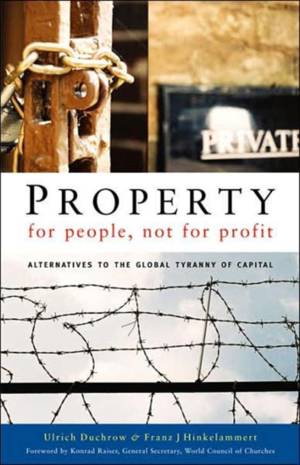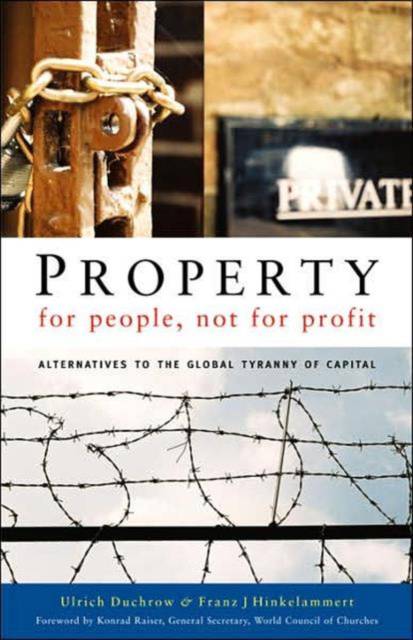
Bedankt voor het vertrouwen het afgelopen jaar! Om jou te bedanken bieden we GRATIS verzending (in België) aan op alles gedurende de hele maand januari.
- Afhalen na 1 uur in een winkel met voorraad
- In januari gratis thuislevering in België
- Ruim aanbod met 7 miljoen producten
Bedankt voor het vertrouwen het afgelopen jaar! Om jou te bedanken bieden we GRATIS verzending (in België) aan op alles gedurende de hele maand januari.
- Afhalen na 1 uur in een winkel met voorraad
- In januari gratis thuislevering in België
- Ruim aanbod met 7 miljoen producten
Zoeken
Property for People, Not for Profit
Alternatives to the Global Tyranny of Capital
Ulrich Duchrow, Franz J Hinkelammert
Paperback | Engels
€ 81,45
+ 162 punten
Omschrijving
The issue of private property and the rights it confers remain almost undiscussed in critiques of globalization and free market economics. Yet property lies at the heart of an economic system geared to profit maximization. The authors describe the historically specific and self-consciously explicit manner in which it emerged. They trace this history from earliest historical times and show how, in the hands of Thomas Hobbes and John Locke in particular, the notion of private property took on its absolutist nature and most extreme form--a form which neoliberal economics is now imposing on humanity worldwide through the pressures of globalization. They argue that avoiding the destruction of people's ways of living and of nature requires reshaping our notions of private property. It also examines the practical ways for social and ecumenical movements to press for alternatives.
Specificaties
Betrokkenen
- Auteur(s):
- Uitgeverij:
Inhoud
- Aantal bladzijden:
- 256
- Taal:
- Engels
Eigenschappen
- Productcode (EAN):
- 9781842774793
- Verschijningsdatum:
- 1/01/2004
- Uitvoering:
- Paperback
- Formaat:
- Trade paperback (VS)
- Afmetingen:
- 144 mm x 216 mm
- Gewicht:
- 326 g

Alleen bij Standaard Boekhandel
+ 162 punten op je klantenkaart van Standaard Boekhandel
Beoordelingen
We publiceren alleen reviews die voldoen aan de voorwaarden voor reviews. Bekijk onze voorwaarden voor reviews.









